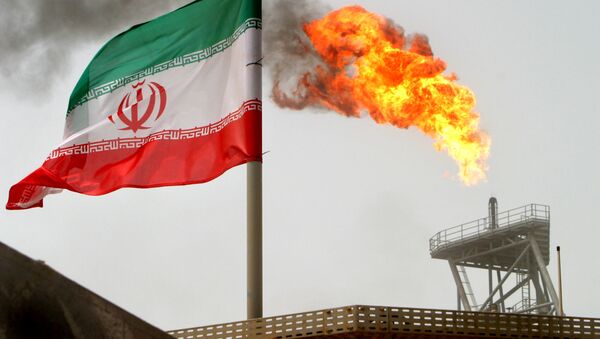Seyyed Saeed Mirtorabi Hosseini, an Iranian oil and gas analyst from Kharazmi University, told Sputnik that the United States will won't able to achieve its goals and bring Iranian oil export to a complete halt since the main importers of Iranian "black gold" have stated that they will continue cooperation with Iran:
"As for oil, the United States has already taken the first steps, held talks with some importers of Iranian oil and tried to make these countries either reduce or stop buying oil from Iran. However, the reality is that the United States will not be able to reduce the sales of Iranian oil to zero, since India, China, Japan and a number of European countries made it clear that they are not going to stop buying oil from Iran. China has not reduced purchases, only Japan has reduced imports of Iranian oil, but then Japan still hasn't made up its mind."
Mirtorabi believes that if the decline in exports from Iran is 1 million barrels per day, then this reduction will be compensated by unofficial sales by the Iranian government:
"Probably, oil purchases will fall by 1-1.5 million barrels per day. This reduction could affect the economy, as well as put psychological pressure on Iran. However, one must keep in mind that the Iranian government has stated that it will continue to sell oil in different ways. Of course, there is no need to voice publicly your plans. Iran already has experience and can sell significant amounts of oil in unofficial ways."
READ MORE: Turkey Seeks to Trade in National Currencies With Russia, China, Iran
Dr. Peyman Molavi from the Iranian Economic Association, noting that a number of sanctions have already been introduced, said that the new US sanctions would be more symbolic. Dr. Molavi believes that the banking sector will be the first to feel a significant negative effect from the sanctions, but in the future Iran, using circumvention mechanisms, will be able to circumvent this barrier.
"In the banking sector, the cost of international financial transactions is increasing, and communication with banks is decreasing. Increasing the cost of financial operations creates a number of difficulties for Iranian companies," the expert explained.
The aim of the sanctions is to exert pressure not only on the economy but also on the population, Molavi said:
"When we talk about sanctions, against Russia or any other country, not only the economy but also ordinary people are impacted by them. Ordinary people are the ones who are the first to feel the effects of a decrease in investment, fluctuations of national currency. The right government policy can restrain the blow and reduce the pressure on its citizens."
READ MORE: Chinese Major Stock Exchanges Slightly Decrease Amid Upcoming US Iran Sanctions
Dr. Molavi also said that if Iran can bypass the sanctions and sell 1 million barrels of oil a day, then the blow to the economy will be minimal.
On November 5, the second package of US sanctions, re-introduced after Washington's withdrawal from the Joint Comprehensive Plan of Action (JCPOA) and targeting in particular Iran's oil sector, takes effect. When commenting on the restrictions, Iranian President Hassan Rouhani said that Iran would continue selling oil despite the introduction of the US sanctions.
US Secretary of State Mike Pompeo announced on Friday the United States would grant temporary waivers to eight countries to allow them to continue importing oil from Iran after November 5, adding that six of the countries agreed to significantly reduce imports of Iranian oil, while two others plan to halt their imports entirely.
The views and opinions expressed by the speakers do not necessarily reflect those of Sputnik.





